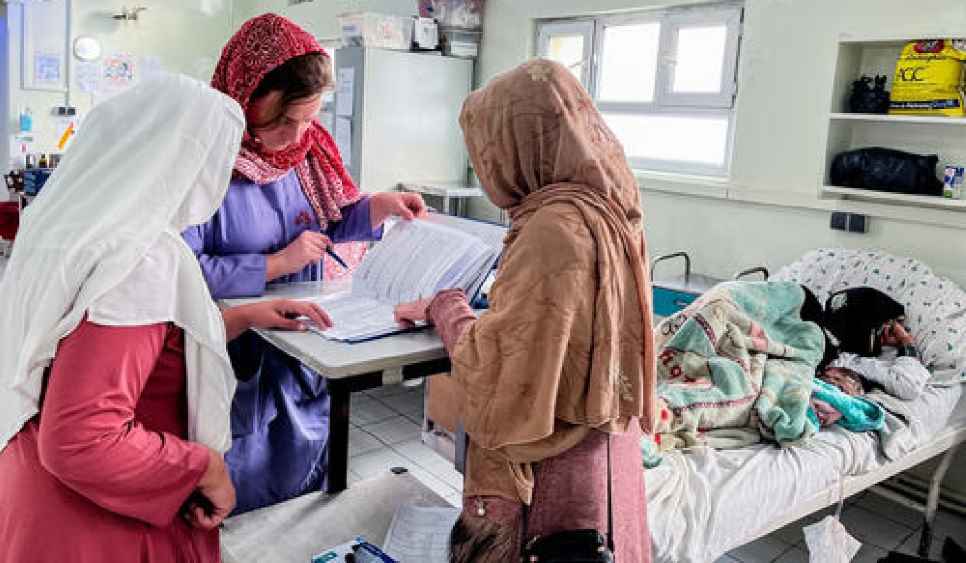
Kabul, 5 December 2024 – The announcement from the Islamic Emirate of Afghanistan to bar women from studying in medical institutes will have far-reaching consequences on women’s health in the country, said Médecins Sans Frontières (MSF) today.
This is another stage in the removal of women from public and professional life. The insufficient number of female healthcare workers in the country already impacts the availability of healthcare in Afghanistan, especially given the separation of male and female hospital wards. New constraints will further restrict access to quality healthcare and pose serious dangers to its availability in the future.
“There is no healthcare system without educated female health practitioners”, says Mickael Le Paih, MSF’s Country Representative in Afghanistan. “In MSF more than 41 percent of our medical staff are women. The decision to bar women from studying at medical institutes will further exclude them from both education and the impartial provision of healthcare.”
The medical needs in Afghanistan are huge, and more women Afghan medical staff need to be trained to address them. For this to happen, women need to have access to education. The education restrictions put in place in 2024, 2022 and 2021 considerably reduce the availability of future female medical staff. In Khost, one of MSF’s busiest maternities worldwide, it is already challenging to fill all necessary positions – including midwives and gynaecologists – and female staff are essential for maternal healthcare programmes. From January to June 2024, MSF assisted 22,300 deliveries.
“If no girls can attend secondary school, and no women can attend university or medical institutes, where will the female health professionals of the future come from and who will attend to Afghan women when they are at their most vulnerable? For essential services to be available to all genders, they must be delivered by all genders,” continued Le Paih.
MSF in Afghanistan remains committed to serving all those in need of medical care, by continuing to advocate for women to have continued access to medical education, and education more broadly.
MSF runs seven projects in Helmand, Kunduz, Herat, Khost, Kabul, Kandahar and Bamyan with a particular focus on delivering secondary healthcare. In 2023, MSF teams were responsible for over 132,600 outpatient consultations, 96,000 inpatient admissions, 383,600 emergency room consultations, 15,200 surgical interventions, and assisted 45,260 deliveries. There were 10,500 patients enrolled in the ambulatory therapeutic feeding centres and 12,500 patients admitted to inpatient therapeutic feeding centres.



